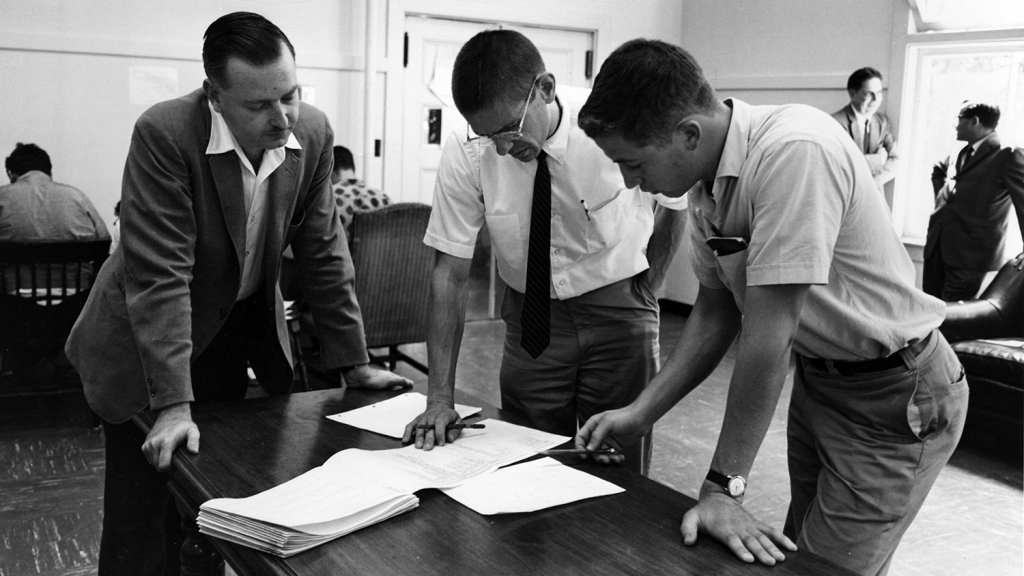From an article on Dartmouth Now
“Once upon a time, knowing how to use a computer was virtually synonymous with knowing how to program one. And the thing that made it possible was a programming language called BASIC,” writes Harry McCracken in a TIME article about the history and legacy of BASIC, developed 50 years ago by mathematics professor and future Dartmouth president John Kemeny, math professor Tom Kurtz, and a handful of Dartmouth undergraduates.
“Sooner or later, it was inevitable that someone would come up with a programming language aimed at beginners. But BASIC as it came to be was profoundly influenced by the fact that it was created at a liberal arts college with a forward-thinking mathematics program,” writes McCracken. “The historic moment at Dartmouth on May 1, 1964, at 4 a.m. was actually two historic moments. Not one brief BASIC program but two or three of them–accounts vary–ran simultaneously, proving both that BASIC worked and that the Dartmouth Time-Sharing System was capable of dealing with more than one user at a time.”
“The goal of Kemeny and Kurtz was to make these great, new, and interesting machines available to a much broader group of minds,” Dan Rockmore, the William H. Neukom 1964 Distinguished Professor of Computational Science, tells TIME. “They succeeded.”
McCracken concludes, “No, BASIC isn’t a pervasive part of personal computing anymore. But the grand, improbable idea that started at Dartmouth ended up changing our culture forever–and it’s tough to think of a greater legacy than that.”
Dartmouth is celebrating 50 years of BASIC with a day of events on Wednesday, April 30.
Read the full story, published 4/29/14 by TIME.
